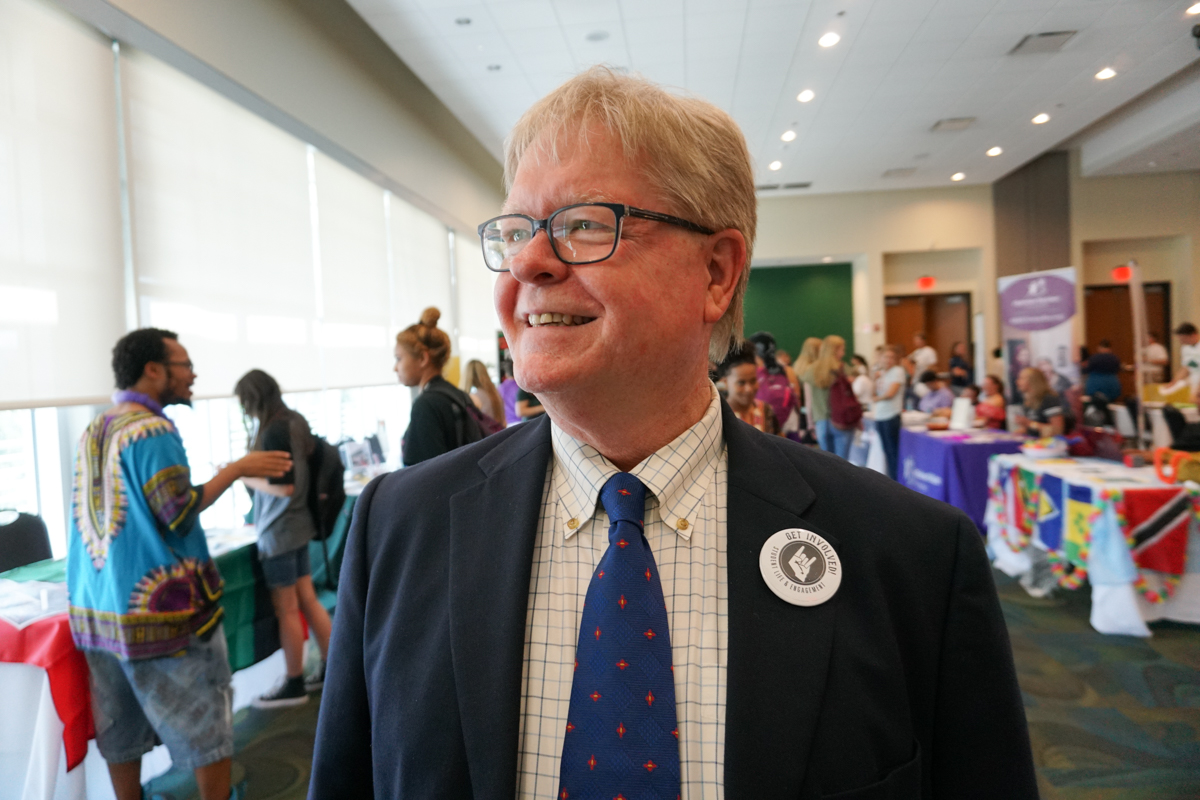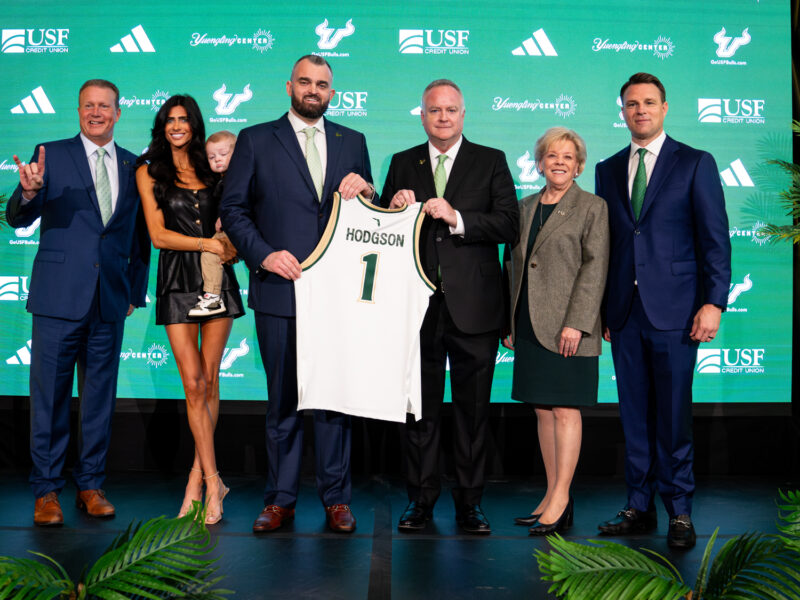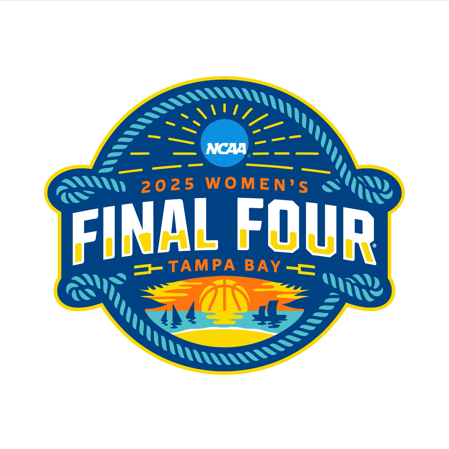Pictured above: Regional Chancellor Martin Tadlock, shown at Get On Board Day in August 2018, addressed the USF St. Petersburg community in a virtual town hall on April 6. “Hang in there, keep your chin up, and keep the attitude where it needs to be,” he said to the group of 250 attendees. Martha Rhine | The Crow’s Nest
By Carrie Pinkard
The coronavirus pandemic has brought university activities to a screeching halt, sent students home and moved courses online.
Despite these changes, Regional Chancellor Martin Tadlock remains optimistic.
He spoke to about 250 people from the USF St. Petersburg community in a virtual town hall on April 6. His central message: We will get through this.
“No matter how significant this event might be, no matter how long it takes to get through it, we’re going to come out on the other end, and we’re going to be a better people.”
Tadlock went on to commend how the university community is coming together during this crisis.
He said 128 pounds of food were donated to the Support-A-Bull food pantry. He also said the College of Marine Science and the College of Arts and Sciences have donated medical equipment and personal protective equipment to Johns Hopkins Hospital.
He also mentioned the pen pal program started by Compass Student Experience. The program connects students who are isolated during the pandemic to one another.
“We started with 600 of our students who signed up,” Tadlock said. “Now we’re up to over 1,500 students spread all over the U.S. and overseas. We have students from the University of Hawaii and the University of Zambia in Africa.”
Tadlock touted the United Support Fund set up to provide emergency financial aid to students who need it during these trying times. The fund has raised more than $155,000 for students in need.
The application is brief, and all it requires is documentation about why you need the funds and what you will use them for.
Student body president Jazzy Duarte attended the town hall and said filling out the form was “very simple.”
“It took about 25 minutes to get all of my documents together, and I got my funding within two weeks,” she said.
After Tadlock’s opening remarks, members of the community had the chance to ask questions about the changes facing our campus.
One person asked if this would delay consolidation.
“We will be one USF come July 1,” Tadlock said.
Another asked if the pandemic would delay construction of the new residence hall or the remodeling of Davis Hall’s second floor.
Tadlock said the new residence hall is scheduled to open in the fall, after USF canceled all summer housing for students. Renovations to the second floor of Davis Hall might be slightly delayed as administrators assess the best path forward.
Victoria Beltran, health educator at the Wellness Center, spoke about the remote services the center is offering.
“If faculty and staff can remind students that we are available for telehealth and mental health before they become too overwhelmed with mental health and health concerns, we would appreciate it,” she said.
Students can still receive counseling services through secure videoconferencing. They can also attend a virtual Relax-A-Bull session that focuses on stress management skills. These take place four days a week, Monday-Thursday, from 3 to 4 p.m.
One source of disappointment among students was the cancellation of in-person spring graduations. Seniors have spent four years working toward their degrees, only to miss out on the chance of tossing their tassels.
Tadlock addressed these concerns by announcing plans to film a virtual commencement ceremony.
“We’re going to film a virtual commencement on April 13,” Tadlock said, “It’ll include our student body president, it will include myself, and I’m not sure who else yet. We will put that together so that students will have a virtual graduation ceremony this spring that will be streamed to them.”
Students who were supposed to graduate in the spring will also have the chance to walk in the summer graduation ceremony if all goes according to plan.
One person wanted to know Tadlock’s estimated timeline on how long students and faculty would continue working remotely.
“It looks like 30 to 60 days is the time period we’re looking at in terms of having people start coming back to work face-to-face,” Tadlock said.
In closing, Tadlock sent words of encouragement to students and staff alike, urging them to pick up the phone if they need support.
“Keep being strong. We are one community here,” Tadlock said. “We’ve gotten through all sorts of things since I’ve been here, and I’ve only been here four years.
“It’s been amazing the turns and twists we’ve navigated together, and this is just going to be another one of those that we navigate together.”



